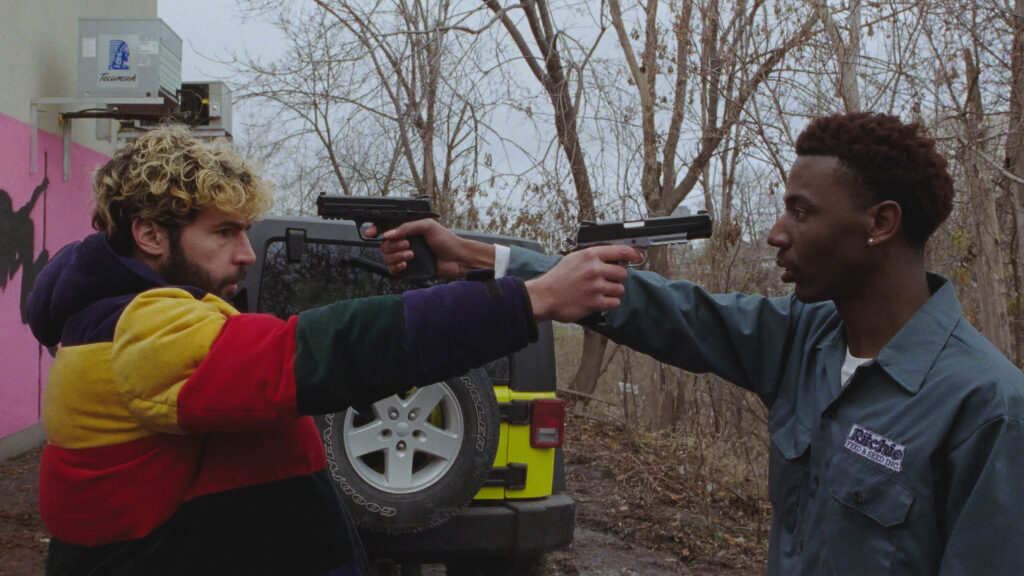Sundance Review: On the Count of Three
Written by Ian Thomas Malone, Posted in Blog, Movie Reviews, Pop Culture
Depression crafts such a deep sense of loneliness, a concept. If misery truly loves company, On the Count of Three makes a compelling case for curating the kind of companionship one should entertain in their darkest hour. Whether internal or external, the drive to try and get better certainly isn’t aided by a Greek chorus echoing songs of hopelessness.
Val (Jerrod Carmichael, who also directed the film) and Kevin (Christopher Abbott) are two best friends teetering on the brink of suicide. Both find comfort in the idea that they’ll have each other for the end, making a pact to kill themselves in a manner best illustrated through the film’s title. Their exact degrees of despondency remain a bit of an open question, allowing the two characters to work each other up into a frenzy.
Carmichael and Abbott carry the film largely through their impeccable chemistry. The audience can clearly see how Val and Kevin became friends, and also why they’re absolutely terrible for each other. There are plenty of moments where you don’t think you should laugh, but Carmichael and Abbott force it out, backed by strong performances from J.B. Smoove and Henry Winkler in bit roles.
The dark comedic tone works pretty well for the narrative. The film earnestly engages with the subject of mental health, something many men struggle to open about. As a director, Carmichael has a firm grasp of pacing, but struggles to paint a clear picture of what the film wants to be. The script isn’t exactly up to the task either, though the acting provides ample cover.
The choppy messaging is bound to rub some people the wrong way, but the film impresses through its meditative engagement of the material. Mental health is a deeply complex subject, one that lends itself to no easy answers. Therapy doesn’t always work. Sometimes, nothing works.
On the Count of Three misses the mark more than it should have. It doesn’t feel like a completely earned sentiment, but Carmichael will undoubtedly provide a needed wake-up call to many depressed people who watch his film. Depression can create the sense that things have spiraled beyond your control, agency stripped from one’s future.
The film works best when it stops to grapple with these broader concepts. Carmichael is a thoughtful filmmaker who understands the power that comes not from arriving at answers, but the value of the pursuit of getting better. Getting help won’t always solve the problem, but the alternative doesn’t offer any solutions.











